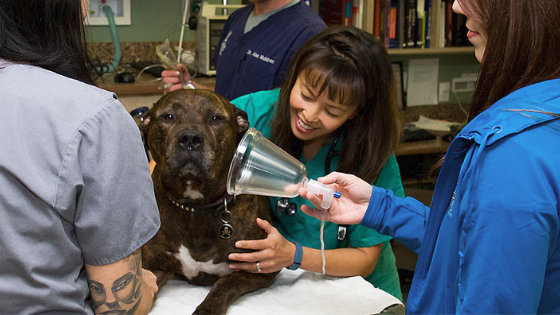Just like humans, dogs can experience sudden health crises that require immediate medical attention. Whether it’s an injury, illness, or sudden onset of symptoms, knowing when to seek urgent care for your canine companion is crucial for their well-being.
Learn about urgent care for dogs, including common reasons for seeking urgent veterinary attention, signs of emergency situations, and how to find a reliable urgent care facility for your furry friend.
Urgent care for dogs plays a vital role in addressing medical emergencies and providing timely treatment to prevent further complications or discomfort. Prompt intervention can make a significant difference in the outcome of certain conditions and improve your dog’s chances of recovery.
Common Reasons for Seeking Urgent Veterinary Attention:
- Traumatic Injuries: Accidents, falls, and encounters with other animals or vehicles can result in traumatic injuries such as wounds, fractures, and lacerations that require immediate medical attention.
- Sudden Illness: Dogs may experience sudden onset of symptoms such as vomiting, diarrhea, lethargy, difficulty breathing, or collapse, indicating a potential medical emergency that requires urgent evaluation by a veterinarian.
- Poisoning or Toxicity: Ingestion of toxic substances such as household chemicals, medications, plants, or certain foods can lead to poisoning and require immediate intervention to prevent serious harm or death.
- Difficulty Breathing: Respiratory distress, wheezing, coughing, or choking can indicate a respiratory emergency that warrants urgent evaluation and treatment by a veterinarian.
- Heatstroke: Dogs are susceptible to heatstroke, especially during hot weather or vigorous exercise. Symptoms may include excessive panting, drooling, weakness, collapse, or seizures, requiring immediate cooling measures and veterinary care.
Signs of Emergency Situations:
Recognizing signs of emergency situations in dogs can help you take prompt action and seek veterinary care without delay. Look out for the following red flags:
- Difficulty Breathing: Labored breathing, wheezing, choking, or gasping for air.
- Uncontrolled Bleeding: Severe bleeding from wounds, lacerations, or trauma.
- Loss of Consciousness: Fainting, collapse, or inability to stand or move.
- Severe Pain: Vocalizing, whimpering, or aggression when touched or moved.
- Seizures: Uncontrolled shaking, convulsions, or loss of consciousness.
- Inability to Urinate: Straining, crying, or discomfort while attempting to urinate.
- Persistent Vomiting or Diarrhea: Frequent vomiting, bloody diarrhea, or signs of dehydration.
- Pale Gums or Mucous Membranes: Abnormal coloration of the gums or inner eyelids.
Finding a Reliable Urgent Care Facility for Your Dog:
When seeking urgent care for your dog, consider the following tips to find a reliable veterinary facility:
- Research Local Options: Identify nearby veterinary clinics or emergency hospitals that offer urgent care services for dogs. Look for facilities with experienced veterinarians, advanced diagnostic capabilities, and emergency medical equipment.
- Check Operating Hours: Choose a veterinary facility with extended hours or 24/7 availability to ensure access to urgent care services when needed, including evenings, weekends, and holidays.
- Read Reviews: Read online reviews and testimonials from other pet owners to gauge the reputation and quality of care provided by veterinary facilities in your area. Positive feedback and recommendations are indicators of reliable and compassionate service.
- Visit the Facility: Schedule a visit to the veterinary facility to tour the premises, meet the staff, and ask questions about their urgent care services, protocols, and pricing.
- Keep Contact Information Handy: Save the contact information for your chosen urgent care facility in your phone and keep a printed copy in your home or vehicle for quick access in case of emergency.
Conclusion:
Urgent care for dogs is essential for addressing medical emergencies and providing timely treatment to ensure your canine companion’s health and well-being.
By recognizing common reasons for seeking urgent veterinary attention, knowing the signs of emergency situations, and finding a reliable urgent care facility, you can be prepared to take swift action and get your dog the help they need when it matters most. Always prioritize your pet’s health and safety, and don’t hesitate to seek veterinary care if you have concerns about their well-being.




